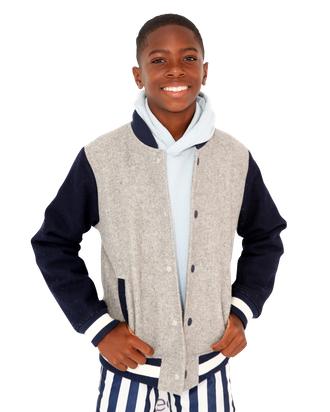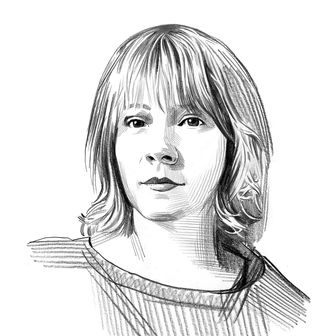
After years of delays, Atlanta season three premiered last Thursday with a standalone episode, “Three Slaps.” The self-contained story revolves around Loquareeous, played by 12-year-old Christopher Farrar, a kid done dirty by his school. He’s sent to the principal for a “disruption” — dancing in class — and the guidance counselor suggests special-ed classes as a means of controlling his behavior. But after witnessing his grandfather give him the titular three slaps in the school hallway, the counselor calls CPS on Loquareeous’s family. His mother kicks him out and he’s made to live with two deranged white women, played by Lauren Dreyfuss and Jamie Neuman. It’s an allusion to the 2018 Hart family murders, in which a lesbian couple killed themselves and their six Black adopted children by driving their van off a cliff, several years after a picture of 15-year-old Devonte Hart hugging a cop went viral. Farrar plays the Devonte character, hugging a police officer in a similar fedora as the viral photo; in Atlanta’s story, Loquareeous manages to escape by jumping out of the van moments before it crashes over the embankment, and his foster siblings are later found safe.
Farrar has been acting for six years, with roles in Veep, Young Sheldon, and Chicago Med, and played the horror of his Atlanta episode without ever watching the show. Vulture spoke with him about doing his own stunts, traveling to Atlanta, and eating cooked chicken made to look raw.
I heard you just got out of school for the day. Has anybody at school seen the episode yet?
Yeah, the night the episode premiered I got a few text messages from some of my classmates. They’re like, “Chris, was that you in Atlanta?”
How did you get the part?
My mom got an email from my manager and I auditioned twice for it. The second time we got the call that I booked it and then I flew out to Atlanta and filmed it.
Had you been to Atlanta before?
I’d been to Atlanta when I was three or four for tournaments for my auntie because she was a basketball player. But I didn’t really remember it, so it was nice going back there and seeing all the different landmarks. Me and my dad had a lot of fun there.
How do you think Loquareeous’s story connects to the show as a whole?
It shows how people are getting mistreated in homes like that. It really shows the lives of young Black males.
Did that set at the foster parents’ house inform your performance?
Seeing the backyard and the grass and the house helped me get into character with how they lived.
What was it like eating that chicken?
When I first saw the chicken I was like, “What is this? Do I actually have to eat this?” It wasn’t raw chicken. The chicken was actually done. They did some coloring and special effects to it. It was going through my mind, Is this actually how homes like this work?
Tell me about shooting the scene in the car. I assume that you had somebody help you with your stunts?
Yeah, they had someone helping. I landed on the path and it was scary when I first did the flipping over and stuff like that, but it was fun to see how it came out.
So when you shot that, was it actually at night?
Outside on the bridge. It was really cold, too.
What was craft services like?
Craft services was amazing. They had unlimited Bodyarmor, and I drink Bodyarmor a lot. That’s my favorite drink. When I saw that I went to craft services any time I could go, on every break.
When did you decide you wanted to start acting?
When I was younger we would be in stores and people would be like, “He has so much personality. He needs to be on TV.” So my mom got me with the agency where we lived, and I started doing auditions and going to acting classes, and I really started to like it. And that’s when my parents started taking it serious and we moved to California. It all happened from there.
What do you think Loquareeous’s future is going to be like now that he’s out?
I feel like he’s going to try to do better and be more self-aware. Not do bad things, and do better in school.
I mean he got in trouble for being exuberant, but is that really a bad thing?
It’s not really a bad thing, but yeah, there’s a time and place to do certain things. You learn that.
The episode has some pretty heavy themes. How much of that history have you learned in school?
Well, I haven’t learned that much about that history in school, but my parents and my grandparents do talk to me about it at home.
Your episode was pretty self-contained, but did you get to meet any cast and crew?
I actually got to meet Donald and talk to him. I had a conversation with him, and that was really nice.
Did you learn anything from that conversation or from being on the set?There were a lot of hard-working people on set, getting it set up, bringing the stuff up the stairs — it showed me that hard work pays off because the episode came out amazing.
Are you allowed to watch the rest of the show?
No, not really. [Laughs]


